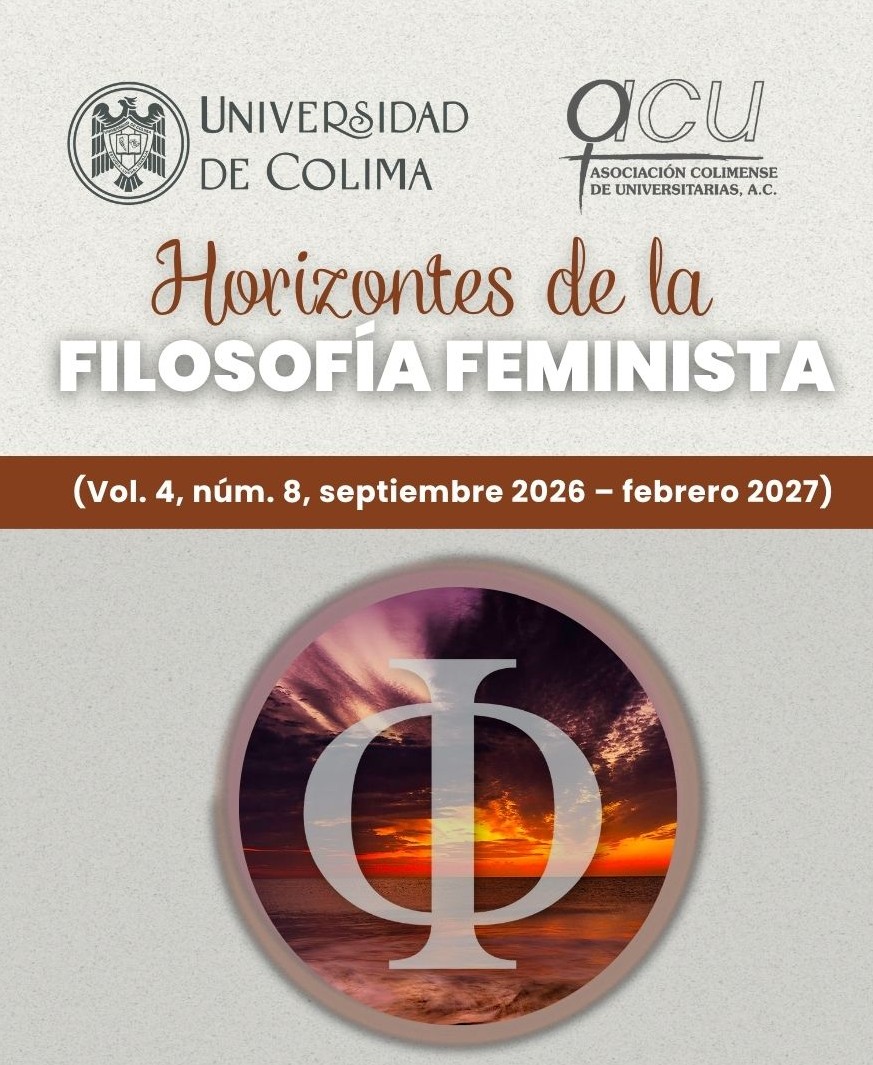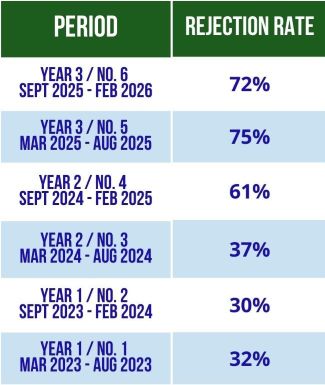Compassion as Psychological Strength
in Women During a Pandemic
Keywords:
emotions, gender, psychological resource, emotional vulnerability, COVID-19Abstract
With the arrival of SARS-CoV-2, the interest in studying variables related to mental health such as depression, anxiety and stress has increased, however, there are few
studies focused on psychological resources, even less exclusive in women. Throughout history, they are the ones who have been the caretakers of the home, the children, dependent people, a fact that, with the isolation, has been exacerbated. Therefore, the present study aims to understand compassion in women during confinement and
social distancing. A group of 881 women from different states of the Mexican Republic responded to a series of instruments to measure levels of confinement, COVID-19
stressors, compassion, and positive and negative affection. Compassion was found to be positively correlated with a positive affection, while the latter was negatively correlated
with negative affection. The participants in this study were shown to be compassionate regardless of having suffered from COVID-19 or not. These findings make it possible to recognize that compassion has been maintained as a resource that could constitute a psychological strength in order to face difficulties caused by the measures established during this pandemic.
Downloads
Metrics
References
Alonso, M., y Simón, V. (2018). Mindfulness, empatía y el poder terapéutico de la compasión. En: M. Santed, y S. Segovia (coords). Mindfulness Fundamentos y aplicaciones (pp. 241-261). España: Ediciones Paraninfo.
Araya, C., y Moncada, L. (2016). Auto-compasión: origen, concepto y evidencias preliminares. En: Revista Argentina de Clínica Psicológica, XXV, (1), pp. 67-78.
Blanco, G., y Feldman, L. (2000). Responsabilidades en el hogar y salud de la mujer trabajadora. En: Salud Pública de México, 42(3), pp. 217-225.
Chapa-Romero, A. (2018). Género y Salud. En: Blázquez-Graf y A. Chapa-Romero (coords). Inclusión del análisis de género en la ciencia (pp. 15-29), Cuidad de México: Colección Alternativas.
Doménech, M. (2021). ¿Debería el derecho animal estar incluido en la agenda por los Derechos Humanos? En: Revista de cooperación, (19), pp. 25-33.
Flores, F. (2015). Experiencia vivida, género y VIH. Sus representaciones sociales. México: Universidad Nacional Autónoma de México.
Germer, C., y Siegel, R. (2012). Wisdom and compassion: two wings of a bird. En: Siegel, R. y Germer, C. (Eds.). Wisdom and compassion in psychotherapy: Deepening mindfulness in clinical practice (pp. 7-34). New York: The Guilford Press.
Gómez, V., y Jiménez, A. (2015). Corresponsabilidad familiar y el equilibrio trabajofamilia: medios para mejorar la equidad de género. En: Polis, Revista Latinoamericana. 14(40), pp. 1-15.
Robles, R., y Páez, F. (2003). Estudio sobre la traducción al español y las propiedades psicométricas de las escalas de afecto positivo y negativo (panas). En: Salud Mental, 26(1), pp. 69-75.
Rubio-Herrera, A. y Flores-Palacios, F. (2018). Vulnerabilidad y su uso en la Política Social del Estado de Yucatán. La dirección de atención a la infancia y la familia. En: Revista Liminar. Estudios Sociales y Humanísticos, XVI, (2), pp. 118-131.
Sánchez-Cabada, M.; Elizalde-Monjardín, M., y Salcido-Cibrián, L. (en prensa). En: Revista Psicología y Salud.
Santed, M. (2018). Procesos Psicológicos en Mindfulness. En: Santed, M. y Segovia, S. (coords), Mindfulness Fundamentos y aplicaciones (pp. 241-261), España: Ediciones Paraninfo.
Simón, V. (2015). La compasión: el corazón de mindfulness. Barcelona, España: Sello Editorial.
Stolke, V. (2004). La mujer es puro cuento: la cultura de género. En: Estudios Feministas, Florinapolis, 12(2): 264, pp. 77-105.
Vaquiro, S., y Stiepovich, J. (2010). Cuidado informal, un reto asumido por la mujer. En: Ciencia y Enfermería, XVI (2), pp. 9-16.
Vicent, M. M. (2016). La ética del cuidado y Carol Gilligan: una crítica a la teoría del desarrollo moral de Kohlberg para la definición de un nivel moral postconvencional contextualista. En: Daimon Revista internacional de filosofía, (67), pp. 83-98.
Wenham, C.; Smith, J., y Morgan, R. (2020). COVID-19: the gendered impacts of the outbreak. En: The Lancet, 395(10227), pp. 846-848.
Sitios Web:
Ahorsu, D.; Chung-Ying, L.; Imani, V., et al. (2020). The Fear of COVID-19 Scale: Development and Initial Validation. En: International Journal of Mental Health and Addiction. Disponible en: https://doi.org/10.1007/s11469-020-00270-8
Alonso, M., y Germer, C. (2016). Autocompasión en Psicoterapia y el Programa Mindful Self Compassion: ¿Hacia las Terapias de Cuarta Generación? En: Revista De Psicoterapia, 27(103), pp. 169-185. Disponible en: https://doi.org/10.33898/rdp.v27i103.111
Arbeláez, T., y Vargas, G. (2015). De la razón cordial a la compasión. La ética con los animales. En: Revista Latinoamericana de Bioética, 2(29), pp. 74-83. Disponible en: https://doi.org/10.18359/rlbi.536
Bellosta-Batalla, M.; Garrote-Caparros, E.; Pérez-Blasco, J., et al. (2019). Mindfulness, empatía y compasión: Evolución de la empatía a la compasión en el ámbito sanitario. En: RIECS 4, (1), pp. 2530-2787. Disponible en: https://ebuah.uah.es/dspace/handle/10017/3574
Bobes-Bascarán, T.; Sainz, P.; Velasco, A., et al. (2020). Early Psychological Correlates Associated With COVID-19 in A Spanish Older Adult Sample. En: Am J Geriatr Psychiatry, 28 (12), pp. 1287-1298. Disponible en: https://doi.org/10.1016/j.jagp.2020.09.005
Brito-Pons, G.; Campos, D., y Cebolla, A. (2018). Implicit or Explicit Compassion? Effects of Compassion Cultivation Training and Comparison with Mindfulness-based Stress Reduction. En: Mindfulness, 9, pp. 1494–1508. Disponible en: https://doi.org/10.1007/s12671-018-0898-z
Cameron, E.; Joyce, K.; Delaquis, C., et al. (2020) Maternal psychological distress & mental health service use during the COVID-19 pandemic. En: Journal of Affective Disorders, 276, pp. 765-774. Disponible en: https://dx.doi.org/10.1016%2Fj.jad.2020.07.081
Casas, M. (2020). Enseñanzas de la pandemia COVID-19. El reencuentro con la vulnerabilidad humana. En: Bioethics Update, 6 (2), pp. 80-91. Disponible en: https://doi.org/10.1016/j.bioet.2020.09.001
Caycho-Rodríguez, T.; Barboza-Palomino, M.; Ventura-León, J., et al. (2020). Traducción al español y validación de una medida breve de ansiedad por la COVID-19 en estudiantes de ciencias de la salud. En: Ansiedad y Estrés, 26, pp. 174-180. Disponible en: https://doi.org/10.1016/j.anyes.2020.08.001
Coltrane, S. (2000). Research on Household Labor: Modeling and Measuring the Social Embeddendness of Routine Family Work. En: Journal of Marriagge and Family, 62, pp. 1208-1233. Disponible en: http://www.jstor.org/stable/1566732
Crosskey, L. y Curry, J. (2011). Self-Compassion: Conceptualizations, Correlates, & Interventions. En: Review of General Psychology. 15, pp. 289-303. Disponible en: https://doi.org/10.1037%2Fa0025754
del Río Lozano, M., y Calvente, M. D. M. G. (2020). Cuidados y abordaje de la pandemia de COVID-19 con enfoque de género. En: Gaceta Sanitaria. Disponible en: https://doi.org/10.1016/j.gaceta.2020.05.006.
Dosil, M.; Ozamiz-Etxebsarria, N.; Redondo, I., et al. (2020). Psychological impact of COVID-19 on a sample of Spanish health professionals. En: Revista de Psiquiatria y Salud Mental. Disponible en: https://doi.org/10.1016/j.rpsm.2020.05.004
Erquicia, J.; Valls, L.; Barja, A., et al. (2020). Impacto emocional de la pandemia de COVID-19 en los trabajadores sanitarios de uno de los focos de contagio más importantes de Europa. En: Medicina Clínica (Barc), 155 (10), pp. 434-440. Disponible en: https://doi.org/10.1016/j.medcli.2020.07.006
Etman, C.; Abdalla, S.; Cohen, G., et al. (2020). Prevalence of Depression Symptoms in US Adults Before and During the COVID-19 Pandemic. En: Jama Network Open, 3 (9). Disponible en: https://doi:10.1001/jamanetworkopen.2020.19686
García-Álvarez, L.; de la Fuente-Tomás, L.; García-Portilla, M., et al. (2020). Early psychological impact of the 2019 coronavirus disease (COVID-19) pandemic and lockdown in a large Spanish simple. En: Journal of Global Health, 10 (2). Disponible en: http://doi:10.7189/jogh.10.020505
Hervás, G. (2017). Los Límites de las Intervenciones Positivas. En: Papeles del Psicólogo/Psychologist Papers, 38(1), pp. 42-49. Disponible en: https://doi.org/10.23923/pap.psicol2017.2820
Hyland, P.; Shevlin, M.; McBride, O., et al. (2020). Anxiety and depression in the Republic of Ireland during the COVID-19 pandemic. En: Acta Psychiatr Scand, 124 (3), pp. 249-256. Disponible en: https://doi.org/10.1111/acps.13219
Jiménez, A.; Triana, M., y Washburn, J. (2002). Compasión y salud. En: Revista de Filosofía Moral y Política. (27), pp. 211–223. Disponible en: https://doi.org/10.3989/isegoria.2002.i27.563
Jiménez, Ó.; Sánchez-Sánchez, L.C., y García-Montes, J.M. (2020). Psychological Impact of COVID-19 Confinement and Its Relationship with Meditation. En: International Journal of Environmental Research and Public Health, 17, 6642. Disponible en: https://doi.org/10.3390/ijerph17186642
Korkmaz, S.; Kazgan, A.; Cekic, S., et al. (2020). The anxiety levels, quality of sleep and life and problem-solving skills in healthcare workers employed in COVID-19 services. En: Journal of Clinical Neuroscience, 80, pp. 131-136. Disponible en: https://doi.org/10.1016/j.jocn.2020.07.073
Li, A.; Wang, S.; Cai, M., et al. (2021). Self-compassion and life-satisfaction among Chinese self-quarantined residents during COVID-19 pandemic: A moderated mediation model of positive coping and gender. En: Personality and Individual Differences 170, Disponible en https://doi.org/10.1016/j.paid.2020.110457.
López, T., y Moreno, A. (2019). Escala de Compasión (ECOM) para población mexicana. En: Psicología y Salud, 29(1), 25-32. Disponible en: https://doi.org/10.25009/pys.v29i1.2565
Meynaar, I.; Ottens, T.; Zegers, M., et al. (2021). Burnout, resilience and work engagement among Dutch intensivists in the aftermath of the COVID-19 crisis: A nationwide survey. En: Journal of Critical Care, 62, pp. 1-5. Disponible en: https://doi.org/10.1016/j.jcrc.2020.11.010
Miller, J.; Niu, C., y Moody, S. (2020). Child welfare workers and peritraumatic distress: The impact of COVID-19. En: Children and Youth Services Review, 119. Disponible en: https://doi.org/10.1016/j.childyouth.2020.105508
Neff, K. (2003). The development and validation of a scale to measure self-compassion. En: Self and Identity, 2(3), pp. 223-250. Disponible en http://psycnet.apa.org/record/2003-05728-004.
Organización de las Naciones Unidas, ONU Mujeres (2020). COVID-19 en América Latina y El Caribe: Cómo incorporar a las mujeres y la igualdad de género en la gestión de la respuesta a la crisis. Disponible en: https://lac.unwomen.org/es/digiteca/publicaciones/2020/03/covid-como-incorporar-a-las-mujeres-y-laigualdad-de-genero-en-la-gestion-de-respuesta
Organización Mundial de la Salud (OMS) (2005). Género y salud mental de las mujeres. Disponible en: www.un.org/spanish/Depts/dpi/boletin/mujer/genderwomen.html
Pakpour, A.; Girffinths, M., y Lin, C. (2020). Assessing Psychological Response to the COVID-19: The Fear of COVID-19 Scale and the Covid Stress Scales. En: International Journal of Mental Health and Addiction. Disponible en: http://doi.org/10.1007/s11469-020-00334-9
Salcido-Cibrián, L., Jiménez-Jiménez, Ó., Ramos, N. y Sánchez-Cabada, M. (2021). Intervención en duelo y mindfulness. En: Diversitas, 17(1). Disponible en: https://doi.org/10.15332/22563067.xxxx
Taylor, S.; Landy, C.; Paluszek, M., et al. (2020). Development and initial validation of the Covid Stress Scales. En: Journal of Ansiety Disorders, 72. Disponible en: https://doi.org/10.1016/j.janxdis.2020.102232
Downloads
Published
How to Cite
Issue
Section
License

This work is licensed under a Creative Commons Attribution-NonCommercial-ShareAlike 4.0 International License.
GénEroos Magazine allows you to share, copy and redistribute the material in any medium or format; adapt, remix, transform and build upon the material, crediting the work appropriately and providing a link to the licence, indicating if changes have been made.








